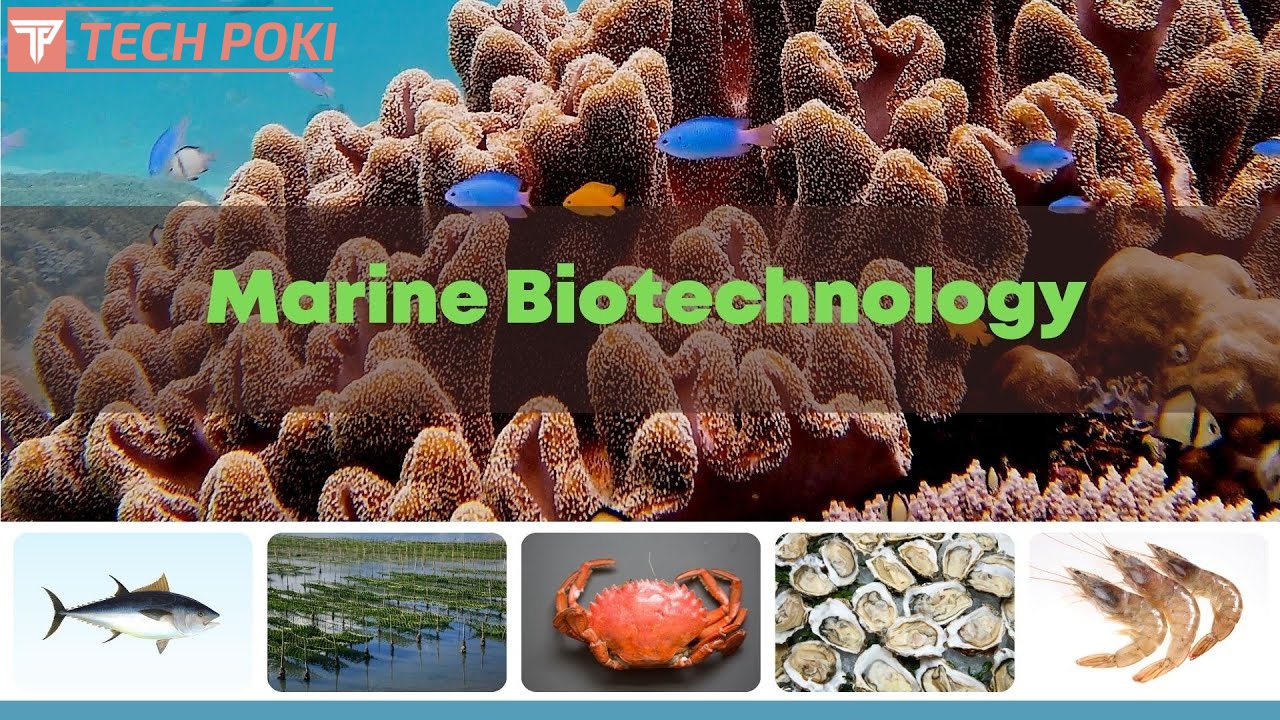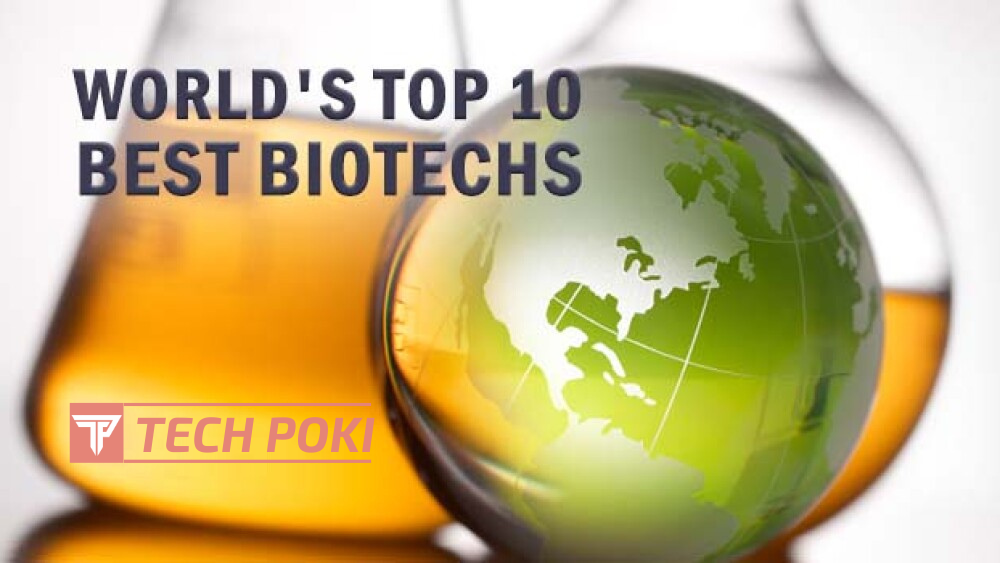The ocean is one of the world’s most valuable resources, holding countless secrets that science is only beginning to uncover. From marine plants and microorganisms to fish and coral reefs, the sea provides immense potential for human advancement. This is where Jobs in marine biotechnology play an essential role. Marine biotechnology is a field that merges biology, technology, and the ocean’s resources to develop innovations for medicine, food, energy, and environmental sustainability. As demand for ocean-based solutions grows, so does the need for skilled professionals in this sector.
What is Marine Biotechnology?
Before diving into career opportunities, it’s important to understand the field itself. Marine biotechnology involves using ocean organisms such as algae, bacteria, sponges, and fish to develop products and technologies that benefit society. This ranges from creating new medicines to producing biofuels, improving aquaculture, and even cleaning up polluted waters. With so many applications, Jobs in marine biotechnology span multiple industries and disciplines, making it one of the most diverse career paths in science.
Career Opportunities in Marine Biotechnology
The variety of Jobs in marine biotechnology makes it an exciting and dynamic field for aspiring professionals. Some of the most common career options include:
- Research and Development Scientist – Working in labs to discover new compounds from marine organisms that can be used in pharmaceuticals or cosmetics.
- Aquaculture Specialist – Improving fish farming methods to make seafood production more sustainable and efficient.
- Marine Bioproduct Developer – Focusing on developing new enzymes, biofuels, and chemicals from marine sources.
- Environmental Consultant – Advising companies and governments on sustainable marine practices.
- Marine Policy Expert – Working with regulatory bodies to ensure marine biotechnology is developed responsibly.
Each of these roles contributes to both innovation and sustainability, ensuring that the world can harness the power of the ocean without destroying it.
Skills and Qualifications Needed
To secure Jobs in marine biotechnology, candidates usually need a strong educational foundation in biology, biotechnology, or marine sciences. Most positions require at least a bachelor’s degree, while research and academic careers typically need a master’s or PhD.
Key skills for success include:
- Knowledge of molecular biology and genetics.
- Lab techniques such as DNA sequencing, protein analysis, and bioinformatics.
- Fieldwork experience in marine environments.
- Data analysis and problem-solving abilities.
- Strong teamwork and communication skills for collaborative projects.
Having these qualifications increases competitiveness in a field that is rapidly expanding.
Top Employers and Work Settings
Another advantage of pursuing Jobs in marine biotechnology is the range of organizations that employ professionals. Common employers include:
- Universities and Research Institutes – Leading scientific studies on marine organisms.
- Pharmaceutical Companies – Using marine sources to create new drugs.
- Aquaculture Businesses – Enhancing seafood production through biotechnology.
- Environmental NGOs – Promoting sustainable use of marine resources.
- Government Agencies – Overseeing fisheries, ocean conservation, and biotechnology policies.
This diversity of work settings means that candidates can choose paths that fit their interests, whether in research, industry, or policy.Salary and Growth Potential
Salary is often a key factor when evaluating careers. Entry-level Jobs in marine biotechnology typically pay between $40,000 and $60,000 annually, depending on the region and role. With advanced degrees and experience, salaries can exceed $100,000, particularly in pharmaceutical research and biotechnology companies.
More importantly, the industry’s growth potential is strong. Global interest in marine-derived products is increasing, especially in pharmaceuticals, nutraceuticals, and biofuels. This demand ensures a steady expansion of opportunities in the coming years.
Challenges in Marine Biotechnology Careers
While rewarding, Jobs in marine biotechnology come with challenges. Research can be expensive, and many projects rely on government or private funding. Environmental concerns also limit how resources can be used, requiring professionals to balance innovation with sustainability. Additionally, competition for top positions is intense, making advanced degrees and specialized skills valuable assets.
Future Prospects in Marine Biotechnology
The future of marine biotechnology is extremely promising, as the oceans are an untapped resource for innovation. Scientists estimate that less than 10% of marine biodiversity has been studied, meaning countless species may hold potential for medicine, nutrition, and sustainable energy. This creates vast opportunities for research, product development, and entrepreneurship.
One of the most exciting areas is pharmaceuticals. Marine organisms are being investigated for compounds that can treat cancer, infections, and neurological disorders. As global investment in drug discovery increases, demand for professionals with expertise in marine biotechnology will rise. Similarly, the aquaculture industry is expanding to meet the world’s food needs, requiring sustainable biotechnological solutions for disease control and improved fish breeding.
Environmental management also represents a major frontier. With climate change and marine pollution threatening ecosystems, biotechnology is being used to develop bio-remediation techniques, algae-based carbon capture, and eco-friendly alternatives to plastics. This means jobs in marine biotechnology will extend beyond labs, influencing policy, conservation, and global sustainability strategies.
The renewable energy sector adds further prospects. Marine algae are being studied for biofuel production, offering a cleaner energy source. As governments push for green energy, specialized careers will open in marine bioenergy research and development.
Looking ahead, jobs in marine biotechnology are set to grow internationally. From research scientists and aquaculture specialists to environmental consultants and bioinformatics experts, career paths are diversifying. Students and professionals who adapt to emerging technologies, gain interdisciplinary skills, and pursue advanced education will be in the strongest position to succeed.
In summary, marine biotechnology will play a critical role in medicine, food security, energy, and environmental protection. The future prospects are not only rich with opportunity but also vital for the health of our planet.
How to Start a Career in Marine Biotechnology
Marine biotechnology is an innovative discipline that combines marine science and biotechnology to develop new products, processes, and solutions. With applications in pharmaceuticals, aquaculture, biofuels, and environmental management, it offers immense career opportunities. Many students and professionals now want to know how to start a career in marine biotechnology, as the field promises growth and global impact.
- Educational Pathways
The first step in pursuing this career is academic preparation. A bachelor’s degree in biotechnology, marine biology, or life sciences provides the foundation. Specialized courses in molecular biology, microbiology, genetics, and bioprocessing strengthen core skills. For higher-level roles, a master’s or PhD in marine biotechnology is highly recommended. Advanced education not only deepens scientific expertise but also increases employability in research and development positions.
- Gaining Practical Experience
Hands-on experience is essential. Students should participate in laboratory training, marine fieldwork, and internships with research institutes, aquaculture companies, or environmental organizations. Research projects on marine organisms, algal biofuels, or marine-derived medicines can significantly improve career prospects. Experience in bioinformatics and genetic analysis is also highly valuable, as computational tools are now integral to biotechnology research.
- Building Professional Networks
Networking plays a vital role in starting a career in marine biotechnology. Joining professional organizations such as the Marine Biotechnology Society or attending international conferences helps connect with researchers, policymakers, and industry leaders. Networking also opens doors to collaborative projects, research grants, and job opportunities.
- Exploring Career Opportunities
Marine biotechnology careers exist in diverse sectors. Graduates can work in pharmaceutical companies developing marine-based drugs, aquaculture industries focusing on sustainable seafood, or environmental firms addressing marine pollution. Government agencies and universities also employ experts for marine conservation and biotechnology policy. Understanding these career paths helps candidates align their education and training with long-term goals.
- Staying Competitive
The field of marine biotechnology is evolving rapidly. Continuous learning is essential. Professionals should stay updated with the latest research, develop new lab skills, and engage in professional certifications. With global demand for marine-derived products growing, those who remain adaptable will have the best chance of career success.
FAQs
1. What is the minimum qualification required to begin a career in marine biotechnology?
Most entry-level jobs require at least a bachelor’s degree in biotechnology, marine science, or life sciences. However, advanced positions in research and development typically demand a master’s or PhD.
2. How important is fieldwork compared to laboratory skills in marine biotechnology?
Both are critical. Fieldwork provides practical knowledge of marine ecosystems, while laboratory skills are essential for genetic analysis, drug discovery, and industrial applications. Successful professionals usually combine both skill sets.
3. Can someone from a non-marine background transition into marine biotechnology?
Yes, but additional training is required. A student from general biotechnology or microbiology can specialize in marine biotechnology through postgraduate studies, research projects, and certifications in marine science.
4. What role does bioinformatics play in applying for jobs in marine biotechnology ?
Bioinformatics is becoming central to the field. It helps analyze genomic data from marine organisms, identify bioactive compounds, and design sustainable aquaculture systems. Professionals skilled in computational tools are highly sought after.
5. How can students increase their chances of securing jobs in marine biotechnology globally?
Students should combine strong academic credentials with international exposure. Publishing research papers, attending global conferences, applying for fellowships, and collaborating on cross-border research projects significantly boost job opportunities in international markets.




This article explained the topic really clearly! The way marine biotechnology jobs were broken down made it easy to understand the opportunities in the field.
Thank you for taking the time to read and engage with our content 🙏 At TechPoki, we truly appreciate your support and look forward to bringing you more insightful articles.